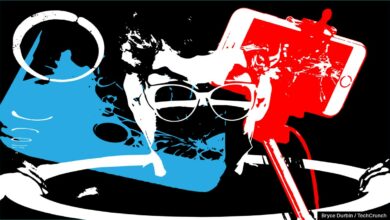New startup from Postgres creator puts the database at heart of software stack

MIT professor Mike Stonebreaker has been at the forefront of database technology for over 50 years. The former Turing Award winner invented the Ingres and Postgres databases and helped launch a number of companies including Streambase Systems (acquired by Tibco in 2013), VoltDB, Tamr and SciDB. Now 80, he knows a thing or two about database technology and launching companies.
His latest project, DBOS, puts the database at the center of the software stack, reducing the operating system to a small kernel of low level functions. He believes that in the modern data-centric world, Linux hasn’t kept up with the scale and speed required to process copious amounts of data in the cloud, so as he’s done throughout his illustrious career, he did the research and developed updated technology for modern data requirements, and of course, also launched a company.
Today, DBOS officially launched with an $8.5 million seed investment.
Stonebraker, who is co-founder and CTO at the company, says the startup is the culmination of a 3-year, joint research project between Stanford and MIT (just a little bit of brain power there). “The genesis of the project was OLTP (online transaction processing) database systems have gotten a lot faster in the last 15 years. And so the thesis was that they would be competitive as a new operating system stack,” he told TechCrunch.
He became interested in trying to put a database system at the bottom of the technology stack as close to bare metal as possible where the operating system usually sits. Bare metal is a term used to describe the pure hardware layer where no software exists. Flipping the OS and the database is bold and revolutionary idea.
He says the company vision really came together after he saw a talk by Databricks CTO Matei Zaharia, who later would become DBOS co-founder and advisor. Zaharia realized at Databricks, that as the amount of data scaled to previously unseen heights, it required a new way of thinking about the software stack. “One thing we had discovered is, as we kept building services to support the database cloud at Databricks, and scale to millions of workloads running at the same time, was that actually it was much easier to make things very database-centric,” Zaharia explained.
That reinforced the idea that had been forming in Stonebraker’s mind, and he began looking at how to take tasks that had been traditionally run in the OS with the C++ programming language, and run them in the database instead, using SQL queries. While operating systems folks were understandably threatened by this notion, so far he has been able to build file, scheduling and messaging systems in DBOS by running SQL queries. What’s more, he’s tested it at a major bank and a consumer food company. These are operations that are traditionally handled at the operating system level.
“We proved it’s performance competitive with whatever you’re currently doing. So that that gave us the courage to keep going,” Stonebraker said. One of the cool things about this approach is the ability to take advantage of database logging capabilities to keep a record of all the operating system events for as long as you like.
“So if a ransomware attack began 12 minutes ago, you just back up everything 13 minutes, a single step around the problem, and you’re back up and running almost instantaneously.” The experimental project became the company DBOS last year. The current product set includes three main pieces: an open source SDK where developers generate and test code locally, before deploying to an auto-scaling serverless cloud. The time travel debugger — the ability to move the OS back and forth in time — also runs in the cloud service.
Stonebraker acknowledges that companies aren’t going to completely change the way they run applications, so the startup is targeting more green field opportunities where companies being built today could take advantage of this new approach to organizing software. More established companies could look at moving specific pieces or newer projects to DBOS, he said.
While Stonebraker and Zaharia have substantial day jobs, making it more challenging to run a company, it’s certainly something that Stonebraker in particular has deep experience managing. He has hired a CEO to run the daily operations, and the company currently has a team of 8 engineers building the products.
The $8.5 million seed investment was was led by Engine Ventures with participation from Construct Capital, Sinewave and GutBrain Ventures.
Source link




